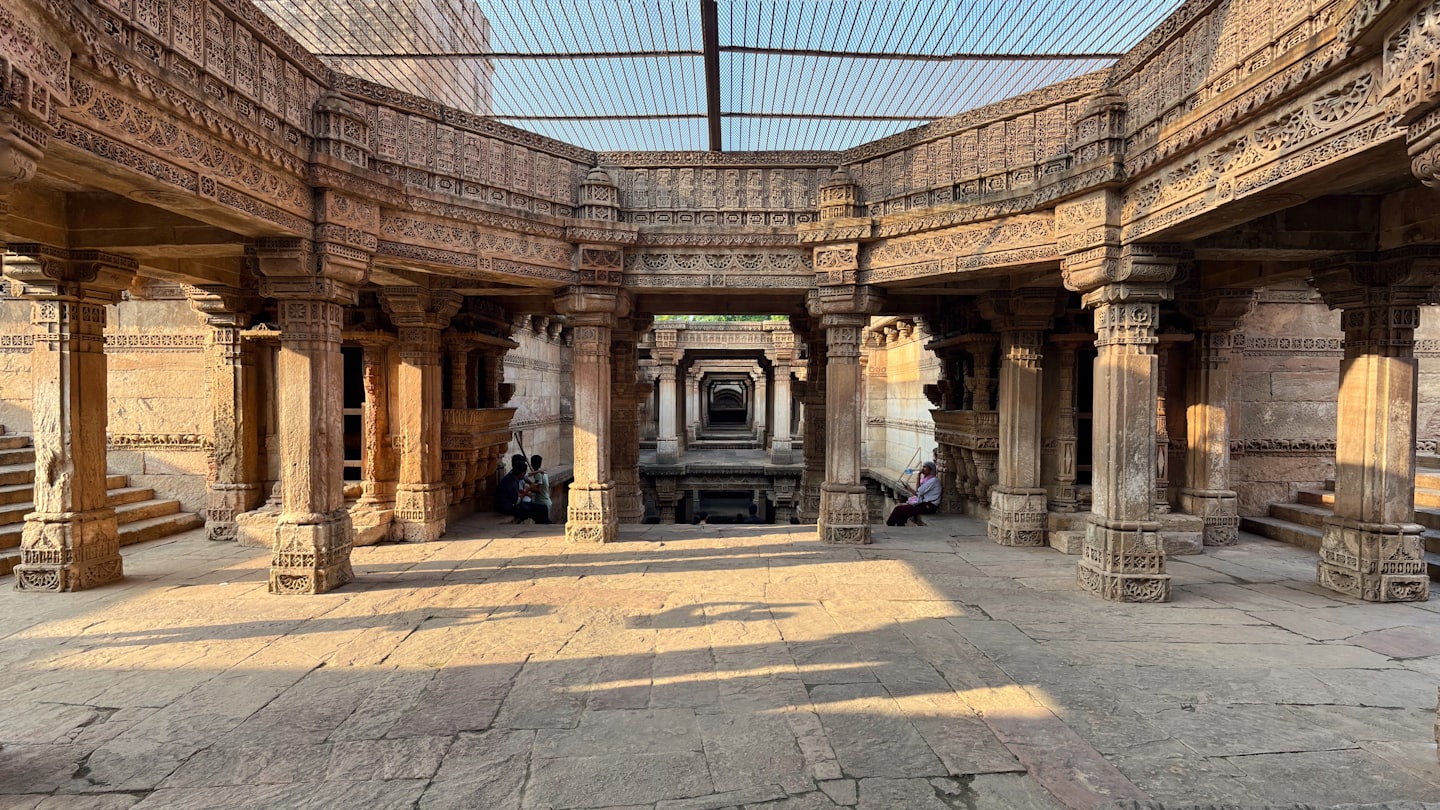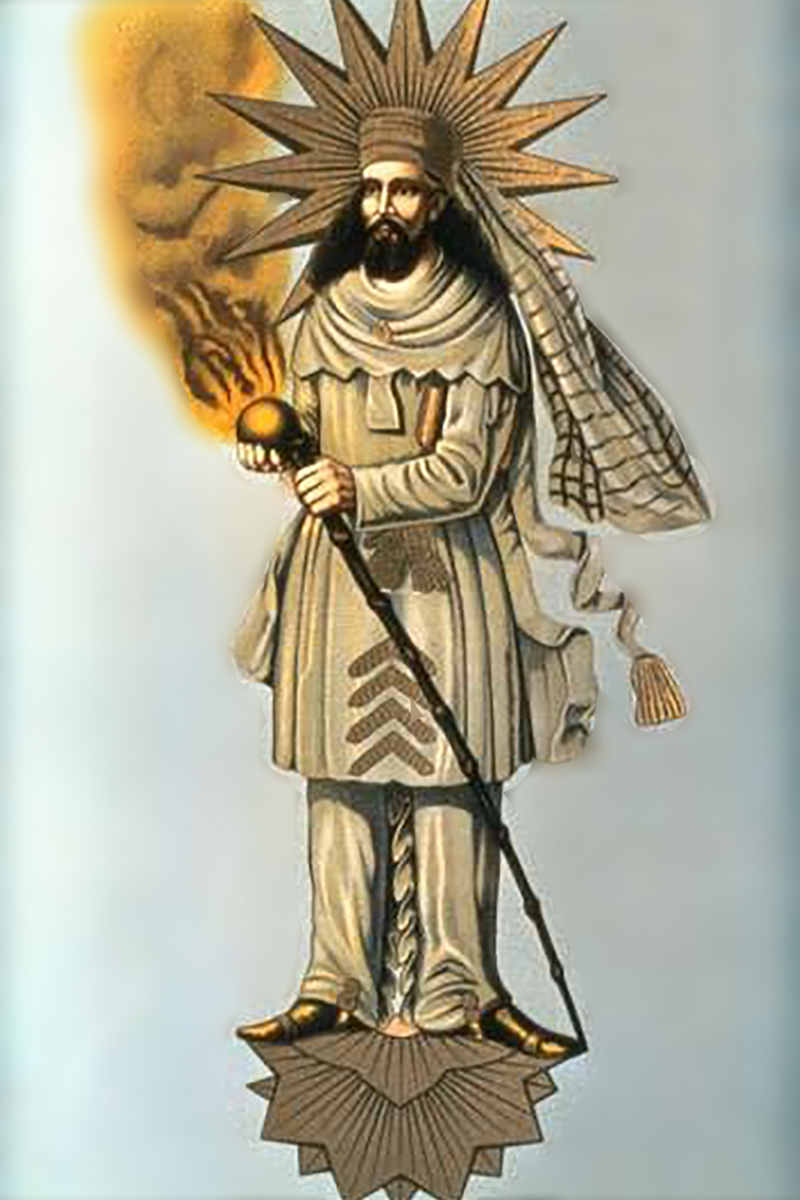
Dive into the life and teachings of Zarathustra to be inspired by his wisdom.
Discover the story of Zarathustra, his contribution to Zoroastrianism and the legacy that shapes the principles of good thoughts, good words and good deeds.
The Life of Zarathustra.

The Life of Zarathustra:
I. Birth Beneath the Eastern Sky
In lands where dawn ignites the jagged peaks,
Where rivers hum through valleys vast and bleak,
A child was born, Zarathustra, herald bold,
Whose tale in time would gleam like burnished gold.
No scribe can fix the year his eyes first gleamed—
Some whisper twelve full centuries, it seemed,
Before our Christ; others, a tighter span,
Six hundred years ere Persia’s rule began.
From Spitama’s proud line, priests of the flame,
He rose, a spark to bear a prophet’s name.
The tales proclaim he laughed when breath he drew,
No wail of woe, but joy the infant knew.
In eastern realms—Kabul’s fierce winds, perhaps,
Or Tajik slopes where snow crowns mountain caps—
His mother, Dughdhova, with tender grace,
And Pourushaspa, father of his race,
Bestowed their love upon this destined son,
A soul to shift the world when day was done.
The stars above, in silent council met,
Foretold a life no age would e’er forget.
II. Youth and the Stirring Soul
Through childhood’s blur, he roamed the open plain,
A herdsman’s boy, unbound by worldly chain.
The cattle lowed, the grasses bent to breeze,
Yet in his heart grew questions none could ease.
The old gods thundered, daevas grim and dire,
Their altars smoked with blood and ceaseless fire.
Mithra’s priests, with chants to sun and sky,
Demanded gifts, their voices soaring high.
But why, he mused, should many rule the day,
When one true light could sweep the dark away?
At twenty summers, restless, fierce, and free,
He turned from rites and kin’s idolatry.
The wild became his home, the hills his school,
Where silence taught what temples scorned as fool.
Ten years he walked, with dust his only friend,
Through desert glare and nights that never end.
The stars his roof, the wind his whispered guide,
He sought a truth no mortal could provide.
Each dawn he woke, each dusk he knelt to ponder,
Till fate’s own hand would rend his world asunder.
III. The Vision of the Wise Lord
At thirty years, beside a river’s flow,
He bathed to cleanse where sacred waters go.
The Haptan Hapta’s banks, so legends claim,
Held witness to the hour that changed his name.
A sudden blaze—Ahura Mazda stood,
The Wise Lord gleamed in radiant brotherhood.
With Vohu Manah, “Good Thought,” at his side,
A spirit pure, where truth and grace abide,
He spoke: “Behold, one God commands the skies,
The daevas falter, built on ancient lies.
Cast down their shrines, their chaos-breeding din,
Raise high the light where righteous hearts begin.”
His soul caught fire, his eyes saw clear and far—
A war of worlds beneath each trembling star.
Angra Mainyu, shadow’s bitter might,
Waged endless strife ‘gainst Mazda’s holy light.
The good, the true, in ceaseless battle locked,
While evil’s hiss through mortal veins still stalked.
He fell to knees, yet rose with purpose strong,
A prophet born to right creation’s wrong.
IV. The Prophet Scorned
To kin he turned, his voice a clarion call,
“Awake, arise, forsake the old gods’ thrall!”
The priests recoiled, their robes a wall of scorn,
Their chants a shield for customs long outworn.
“Your words blaspheme,” they cried, “your tongue’s a blight,
We’ll cling to shadows, shun your blinding light!”
His brothers turned, his village barred its gate,
A wanderer now, he bore a lonely fate.
Through sands he trudged, through storms of piercing cold,
A truth too vast for timid hearts to hold.
The daevas’ whispers dogged his weary tread,
Their malice thick where doubt and fear were bred.
Yet on he pressed, a flame no wind could kill,
His spirit steeled by Mazda’s iron will.
Ten years of flight, of hunger, scorn, and strife,
He sowed his seed, though none would share his life.
The wilderness his pulpit, skies his dome,
He preached to stones when men refused to come.
V. Triumph at Vishtaspa’s Court
At length, his path wound east to Bactria’s plain,
Where Vishtaspa ruled, a king of thoughtful reign.
In halls of power, where silk and gold entwined,
Zarathustra sought a soul of open mind.
The courtiers sneered, the wise men mocked his claim,
“Your one-God talk will earn you naught but shame.”
But he, undaunted, faced their bitter jeers,
With words that pierced like finely honed spears.
“What use your gods of war, your idols vain?
One Lord brings peace where chaos holds its reign.”
The king, entranced, leaned close to hear him speak,
His heart a cup where doubt began to leak.
A debate ensued, three days of fiery clash,
Till foes fell mute, their arguments to ash.
Vishtaspa rose, his crown a humbled weight,
“I see the truth—I’ll bow to Mazda’s state.”
From Kashmar’s soil, a cypress pierced the sky,
A flame was lit that time would not deny.
A temple grew, its hearth forever bright,
A beacon born from Zarathustra’s fight.
VI. Teachings of the Flame
“Good thoughts,” he sang, “good words, good deeds align,
Three threads to weave a life that’s pure, divine.”
The fire he blessed, no deity to bow,
But Mazda’s glow, a guide for here and now.
“Free will is yours,” he taught to gathered throng,
“Choose light or dark, the right or wretched wrong.
A bridge awaits, the Chinvat’s slender thread,
Where souls will walk by how their lives were led.
The just ascend to gardens green and fair,
The false plunge deep to anguish and despair.”
He spoke of time, a cycle vast and grand,
When good would crush the evil’s fleeting hand.
A savior yet, the Saoshyant to come,
Would heal the world when final bells were rung.
His hymns, the Gathas, soared in rhythmic grace,
A poet’s cry to lift the human race.
No priestly chains, no blood to stain the sod,
He gave a path to find the one true God.
VII. The End and Endless Dawn
At seven-and-seventy, so tales attest,
His mortal coil found peace, or bitter jest.
In Balkh’s calm streets, beneath a temple’s shade,
Some say a Turan foe thrust forth his blade.
A priestly rival, jealous of his sway,
Slew him at prayer—or so the old ones say.
Yet others swear he slipped to death’s embrace,
A smile of calm upon his weathered face.
No grave confines him, dust he did not stay,
His spirit rides where winds of dawn hold sway.
Through sons he left—three heirs to bear his load—
His creed took root on Persia’s ancient road.
The Gathas sing, his voice in lines preserved,
A wisdom vast, by countless souls deserved.
Though empires crashed, and Islam’s tide swept near,
His embers glow where faith defeats the fear.
VIII. Legacy in Modern Eyes
Now Parsis tend his flame in India’s breast,
A faithful few, their numbers sorely pressed.
From Bombay’s towers to Karachi’s fading light,
They guard the fire through centuries of night.
His echo hums in faiths that rose afar—
In Judah’s Lord, in Christ’s redeeming star,
In Allah’s call, a thread of oneness runs,
Zarathustra’s gift to all the seeking ones.
Nietzsche stole his name, a jest to wield,
“God is dead,” he mocked on Europe’s field.
Yet truth endures, beyond the German’s art,
A prophet’s pulse still beats in human heart.
His words, though old, in Avestan tongue confined,
Hold beauty yet for those who seek to find.
They bid us climb the heights of thought refined.
“The sacred fire burns within you—tend it with love, truth, and courage.”

Dr. Gen
Church “Alpha Mind”
